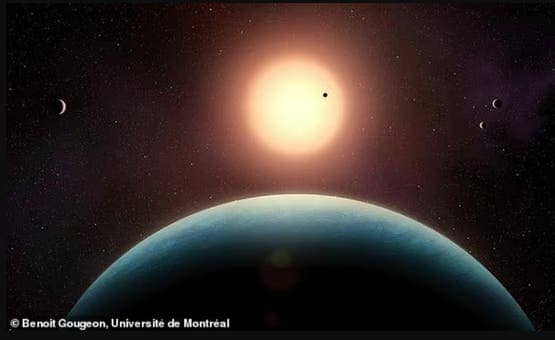Scientists Discover New Earth-Like Planet.. Are We Alone in the Universe?

A research team from the Trottier Institute for Exoplanetary Research has detected a new rocky planet of the "super-Earth" type, located approximately 35 light-years away from Earth. It is possible that it is within the habitable zone around its star, raising questions about the possibility of life beyond our planet.
The planet, named L 98–59 f, was discovered using data from NASA's TESS space telescope, in addition to a detailed analysis of measurements from other ground-based and space telescopes. The planet orbits a red dwarf star known as L 98–59, within a small planetary system that was previously thought to contain only four planets before this fifth planet was revealed.
According to a study published in the "Daily Mail", L 98–59 f is the only planet in the system located in the habitable zone, where liquid water could exist, making it a potential candidate to host conditions suitable for life.
Charles Cadieux, the lead researcher of the study, explained that "finding a temperate planet in such a small planetary system is extremely exciting and highlights the diversity of exoplanets. It underscores the importance of studying rocky planets capable of sustaining life around small stars."
Scientists were able to detect the planet even though it does not transit directly in front of its star like other planets in the system. It was discovered through the subtle changes in the motion of the host star, caused by the planet's gravity.
It is believed that L 98–59 f receives a similar amount of energy from its star as Earth receives from the Sun, increasing the likelihood of it being a suitable environment for life.
This discovery marks an important step in scientists' efforts to answer the age-old question: Are we alone in the universe? It is expected that the James Webb Space Telescope will be used in the future to study this planetary system in more detail and search for signs of an atmosphere or conditions supportive of life.
It is worth noting that the L 98–59 system was first discovered in 2019, but the new data revealed the existence of this additional planet, opening the door to further research on rocky planets outside our solar system.